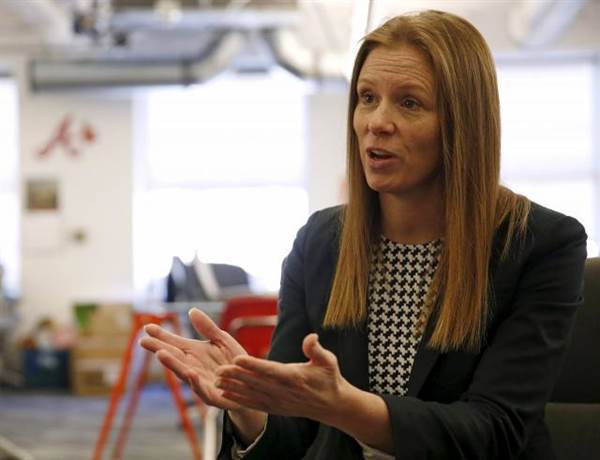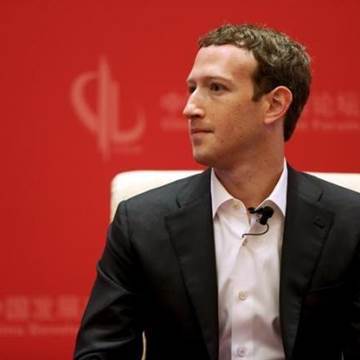After Facebook’s removal of an iconic Vietnam war photo stirred an international uproar last month, the social network’s executives quickly backtracked and cleared its publication.
But the image — showing a naked Vietnamese girl burned by napalm — had previously been used in training sessions as an example of a post that should be removed, two former Facebook employees told Reuters.


Trainers told content-monitoring staffers that the photo violated Facebook policy, despite its historical significance, because it depicted a naked child, in distress, photographed without her consent, the employees told Reuters.
The social network has taken great pains to craft rules that can be applied uniformly with minimal discretion. The reversal on the war photo, however, shows how Facebook’s top executives sometimes overrule company policy and its legions of low- and mid-level content monitors.
Related: Facebook Slammed for Censoring Iconic ‘Napalm Girl’ Photo
Facebook has often insisted that it is a technology company — not a media company — but an elite group of at least five senior executives regularly directs content policy and makes editorial judgment calls, particularly in high-profile controversies, eight current and former Facebook executives told Reuters.
One of those key decision-makers — Justin Osofsky, who runs the community operations division — wrote a Facebook post acknowledging that the removal of the war photo was a “mistake.”
“Sometimes,” he wrote, “the global and historical significance of a photo like ‘Terror of War’ outweighs the importance of keeping nudity off Facebook.”
Facebook spokeswoman Christine Chen declined to comment on the company’s use of the photo in training sessions.
Facebook has long resisted calls to publicly detail its policies and practices on censoring postings. That approach has drawn criticism from users who have had content removed and free-speech advocates, who cite a lack of transparency and a lack of an appeals process for many content decisions.
At the same time, some governments and anti-terror groups are pressuring the company to remove more posts they consider offensive or dangerous.


High-level review
The current and former Facebook executives, most of them speaking on condition of anonymity, told Reuters in detail how complaints move through the company’s content-policing apparatus. The toughest calls, they said, rise to an elite group of executives.
Another of the key decision-makers is Global Policy Chief Monika Bickert, who helped rule on the fracas over the war photo.
“That was one we took a hard look at, and we decided it definitely belonged on the site,” said Bickert, a former federal prosecutor.
She declined to elaborate on the decision-making process.
Facebook chief operating officer Sheryl Sandberg followed up with an apology to Norwegian Prime Minister Erna Solberg, who had posted the photo on her own account after Facebook removed it from others in her country.
In addition to Sandberg, Osofsky and Bickert, executives involved in sensitive content issues include Joel Kaplan, Facebook’s Washington-based government relations chief; and Elliot Schrage, the vice president for public policy and communications.
All five studied at Harvard, and four of them have both undergraduate and graduate degrees from the elite institution. All but Sandberg hold law degrees. Three of the executives have longstanding personal ties to Sandberg.


Chief Executive Mark Zuckerberg, a Harvard drop-out, occasionally gets involved with content controversies, Bickert said.
These executives also weigh in on content policy changes meant to reflect shifting social context and political sensitivities around the world, current and former executives said.
Facebook officials said the five people identified by Reuters were not the only ones involved in high-level content decisions.
“Facebook has a broad, diverse and global network involved in content policy and enforcement, with different managers and senior executives being pulled in depending on the region and the issue at hand,” Chen said.
Chen declined to name any other executives who were involved in content policy.
A war over free expression
The company’s reticence to explain censorship decisions has drawn criticism in many countries around the globe.
Last month, Facebook disabled the accounts of editors at two of the most widely read Palestinian online publications, Shehab News Agency and Quds. In keeping with standard company practice, Facebook didn’t publicly offer a reason for the action or pinpoint any content it considered inappropriate.
The company told Reuters that the removal was simply an error.
Some Palestinian advocacy groups and media outlets condemned the shutdowns as censorship stemming from what they described as Facebook’s improper alliance with the Israeli government.
Israel’s government has pushed Facebook to block hundreds of pages it believes incite violence against Jews, said Noam Sela, spokesman for Israeli cabinet Minister Gilad Erdan.
Sela said the Israeli government “had a connection” at…







![[CES 2026] An Entertainment Companion for Every Moment Seen](https://loginby.com/itnews/wp-content/uploads/2026/01/1768923629_CES-2026-An-Entertainment-Companion-for-Every-Moment-Seen-100x75.jpg)